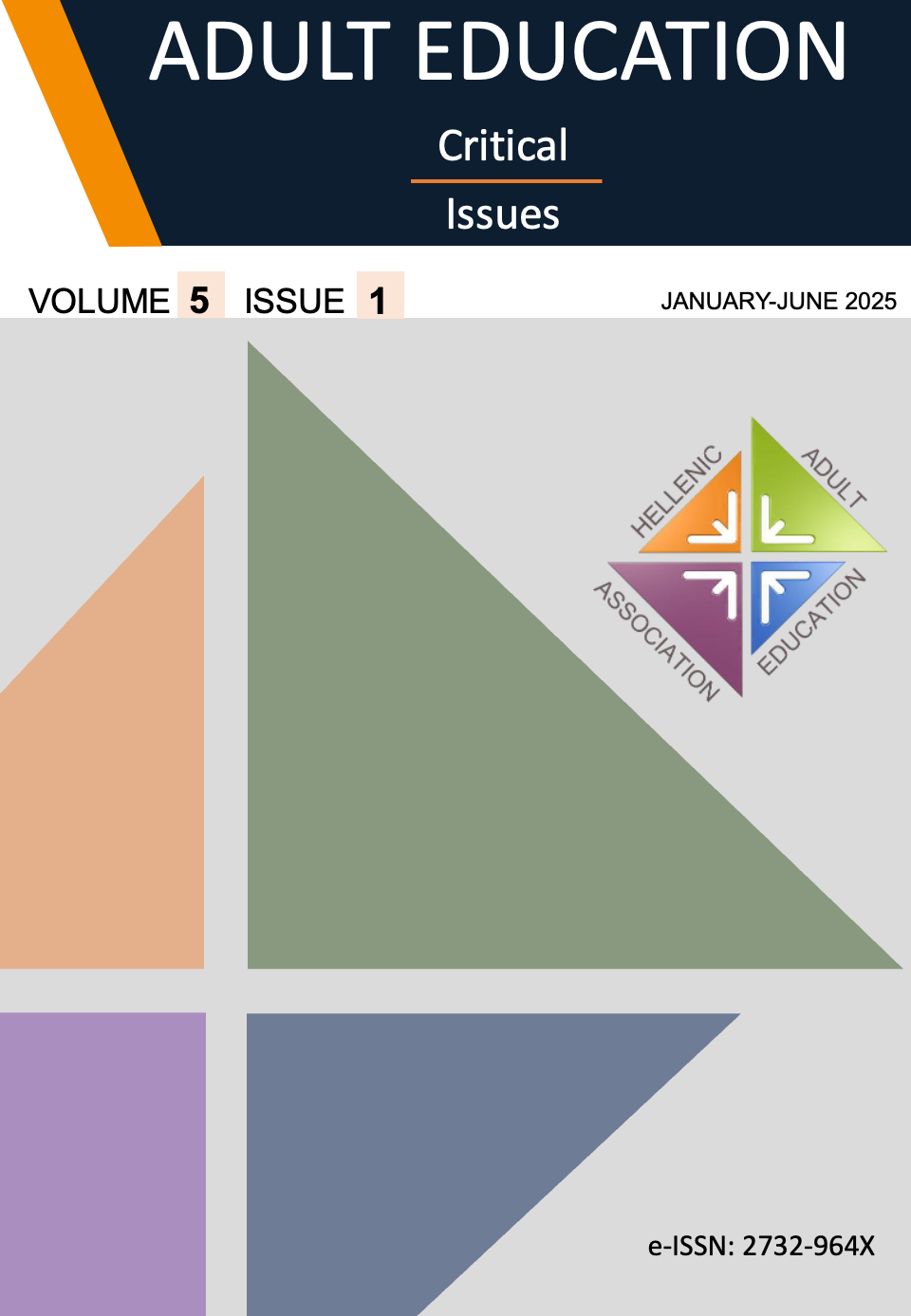Η ετοιμότητα των εκπαιδευτών να ενσωματώσουν συστήματα και εφαρμογές Τεχνητής Νοημοσύνης στην εκπαίδευση. Μια εμπειρική έρευνα του πεδίου στην Ελλάδα, τάσεις και προοπτικές
Abstract
Η Τεχνητή Νοημοσύνη (ΤΝ) συνιστά μια σύγχρονη πραγματικότητα με πολλές εφαρμογές στην καθημερινή και επαγγελματική ζωή των ανθρώπων. Στην εκπαίδευση πολλές εκπαιδευτικές διαδικασίες συντελούνται πλέον με τη συνέργεια της ΤΝ, καλώντας όλους τους εμπλεκόμενους και κυρίως τους εκπαιδευτές να δραστηριοποιηθούν σε εντελώς νέα μαθησιακά περιβάλλοντα. Σκοπός της παρούσας μελέτης είναι, μέσω μιας ποσοτικής έρευνας, η αποτύπωση των απόψεων των εκπαιδευτών της ελληνικής επικράτειας αναφορικά με την ετοιμότητά τους να ενσωματώσουν την ΤΝ στην εκπαιδευτική τους πρακτική και ταυτόχρονα να αναδειχθούν οι σημαντικότερες προκλήσεις που εγείρονται. Οι εκπαιδευτές φαίνεται να έχουν συνειδητοποιήσει πως τα συστήματα ΤΝ είναι ιδιαίτερα επωφελή για την εκπαίδευση και η ετοιμότητά τους να τα ενσωματώσουν στην εκπαιδευτική τους πρακτική βρίσκεται σε σχετικά υψηλά επίπεδα, ενώ ανησυχούν περισσότερο για τις αρνητικές επιπτώσεις που μπορεί να έχει η ΤΝ στη φύση και τη διαδικασία της μάθησης.
Article Details
- Zitationsvorschlag
-
Πουλημένου Σ., & Πανιτσίδου Ε. (2025). Η ετοιμότητα των εκπαιδευτών να ενσωματώσουν συστήματα και εφαρμογές Τεχνητής Νοημοσύνης στην εκπαίδευση. Μια εμπειρική έρευνα του πεδίου στην Ελλάδα, τάσεις και προοπτικές. Adult Education Critical Issues, 5(1), 35–51. https://doi.org/10.12681/haea.39378
- Rubrik
- Articles

Dieses Werk steht unter der Lizenz Creative Commons Namensnennung 4.0 International.
Authors who publish with this journal agree to the following terms:
- Authors retain copyright and grant the journal right of first publication with the work simultaneously licensed under a Creative Commons Attribution License that allows others to share the work with an acknowledgement of the work's authorship and initial publication in this journal.
- Authors are able to enter into separate, additional contractual arrangements for the non-exclusive distribution of the journal's published version of the work (e.g., post it to an institutional repository or publish it in a book), with an acknowledgement of its initial publication in this journal.
- Authors are permitted and encouraged to post their work online (e.g., in institutional repositories or on their website) prior to and during the submission process, as it can lead to productive exchanges, as well as earlier and greater citation of published work (See The Effect of Open Access).



